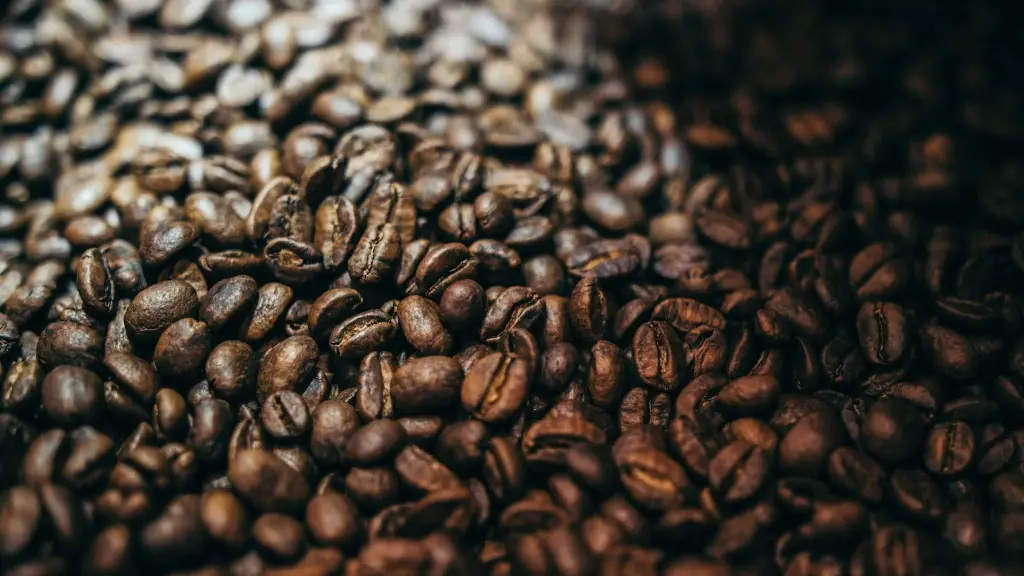Coffee and birth control may seem like two completely unrelated topics, but they’re actually intertwined. That’s because coffee contains caffeine, which can cause changes in the body that can interfere with the effectiveness of some forms of birth control. This is why it’s important to consider the impact of caffeine on your body when you’re trying to determine if it’s safe to drink coffee while on birth control.
Caffeine is a stimulant, so it can increase your heart rate, blood pressure and can also cause your body to produce more hormones. This can lead to changes in your menstrual cycle and make it harder for you to get pregnant. Caffeine can also interact with certain medications, including some forms of birth control. This can make the birth control less effective, meaning there’s a higher risk of pregnancy.
Doctors generally advise that you limit your caffeine intake if you’re taking birth control pills. Research shows that caffeine may decrease the effectiveness of Levonorgestrel-containing pills, which are commonly used for contraception. It’s also been suggested that high caffeine consumption can interfere with other forms of birth control, such as the contraceptive patch and ring, but more research is needed to confirm this.
It’s important to note that the effects of caffeine on birth control vary from person to person. Your body chemistry and how you metabolize caffeine are two factors that can affect how caffeine interacts with your birth control. What works for one person may not work for you, so it’s important to talk to your doctor about your concerns.
Most doctors recommend that if you’re taking birth control and want to drink coffee, you should limit the amount of caffeine you consume. The general recommendation is that you keep your daily intake of caffeine to less than 200 milligrams per day. Additionally, if you’re drinking coffee with other forms of caffeine, such as tea, soda or energy drinks, you should also limit those beverages. It’s also important to keep in mind that decaffeinated coffee still contains some caffeine, so you should also consider the amount of caffeine you’re consuming from other sources.
In addition to limiting your caffeine intake, it’s also important to make sure you’re taking your birth control correctly. The best way to do this is to read the instructions on the packaging and follow the advice of your doctor. Additionally, it’s important to remember that no form of birth control is 100 percent effective and caffeine may reduce the effectiveness of some types of birth control, so it’s important to talk to a doctor if you’re concerned.
Dietary Effects of Coffee and Birth Control
It’s not just caffeine that can affect birth control; other components of coffee can also interfere with the effectiveness of birth control. Many studies have linked coffee consumption to an increased risk of blood clots, which can interfere with blood flow to the uterus and could potentially lead to an increased risk of miscarriage. It’s also been suggested that coffee can affect sex hormone levels, which can reduce the effectiveness of some forms of birth control.
These effects are more pronounced when high amounts of coffee are consumed regularly. For this reason, it’s generally recommended that you limit your daily coffee consumption if you’re taking birth control. The American College of Obstetricians and Gynecologists (ACOG) advises that women who are taking birth control should limit their caffeine intake to less than 200 milligrams per day.
Coffee and Fertility
It’s also important to consider how coffee consumption can affect fertility. Studies have shown that women who consume large amounts of caffeine may have a reduced chance of becoming pregnant. This is because caffeine has been linked to changes in hormone levels and increased stress, both of which can affect fertility. Additionally, caffeine can interfere with the body’s ability to absorb certain essential vitamins and minerals, which can also impact fertility.
So, the takeaway here is that it is generally not advisable to drink large amounts of coffee while on birth control. Again, it’s important to keep in mind that the effects of caffeine can vary from person to person, so it’s always best to talk to your doctor if you’re concerned. Your doctor will be able to recommend the best course of action depending on your individual needs.
Tips for Limiting Caffeine Intake
If you want to reduce the amount of caffeine you consume, there are a few simple steps you can take. First, substitute decaffeinated coffee for regular coffee and select other non-caffeinated drinks, such as herbal tea and water. Additionally, avoid drinking coffee late at night, as this can interfere with your sleep and can have a negative effect on your overall health. Finally, try to limit your consumption of energy drinks, as these can contain high levels of caffeine.
Coffee and Nutrient Deficencies
It’s important to note that drinking large amounts of coffee can also lead to nutrient deficiencies. Caffeine can interfere with the body’s ability to absorb essential vitamins and minerals, such as iron and zinc. This can lead to a range of health problems, such as anemia and fatigue. Additionally, high caffeine consumption can increase stress, which can affect mental and physical health.
In conclusion, coffee and birth control can have an impact on each other. It’s important to be aware of the potential effects of caffeine on birth control and to talk to a doctor if you’re concerned. Additionally, it’s important to be aware of the potential effects of caffeine on fertility and to limit your caffeine intake if you’re trying to get pregnant. Finally, it’s important to remember that coffee can lead to nutrient deficiencies, so it’s important to stay mindful of your overall health and wellbeing.
Caffeine Alternatives for Healthier Living
When it comes to reducing your caffeine intake, there are a variety of options. Many people find that substituting tea for coffee is an easy way to reduce their caffeine intake. Herbal teas and other caffeine-free beverages, such as kombucha, are also great alternatives. Additionally, many people find that switching to decaffeinated coffee is an effective way to reduce their caffeine intake.
For those who prefer a hot beverage but want a caffeinated option, there are several coffee substitutes on the market. These coffee substitutes are made from grains, nuts or seeds, and they make a great coffee alternative. Additionally, oat milk or almond milk lattes are great options for those who want to reduce their caffeine intake while still enjoying a cup of coffee.
Lifestyle Tips for Staying Healthy While on Birth Control
Of course, reducing your caffeine intake is just one aspect of staying healthy while on birth control. It’s also important to get regular exercise and to eat a balanced diet. Additionally, it’s important to get enough sleep and to practice stress-management techniques. These lifestyle habits can help to ensure you stay healthy while on birth control.
Alternative Methods of Birth Control
Additionally, there are a variety of alternative methods of birth control that can be used in conjunction with coffee. For example, many people find that an intrauterine device (IUD) is a convenient and effective option. Additionally, long-acting reversible contraceptives (LARCs), such as the contraceptive injection and the contraceptive implant, are also great options. These contraceptives are highly effective and don’t require taking a pill every day, so they can be a great option for those who don’t want to worry about taking a pill every day.




